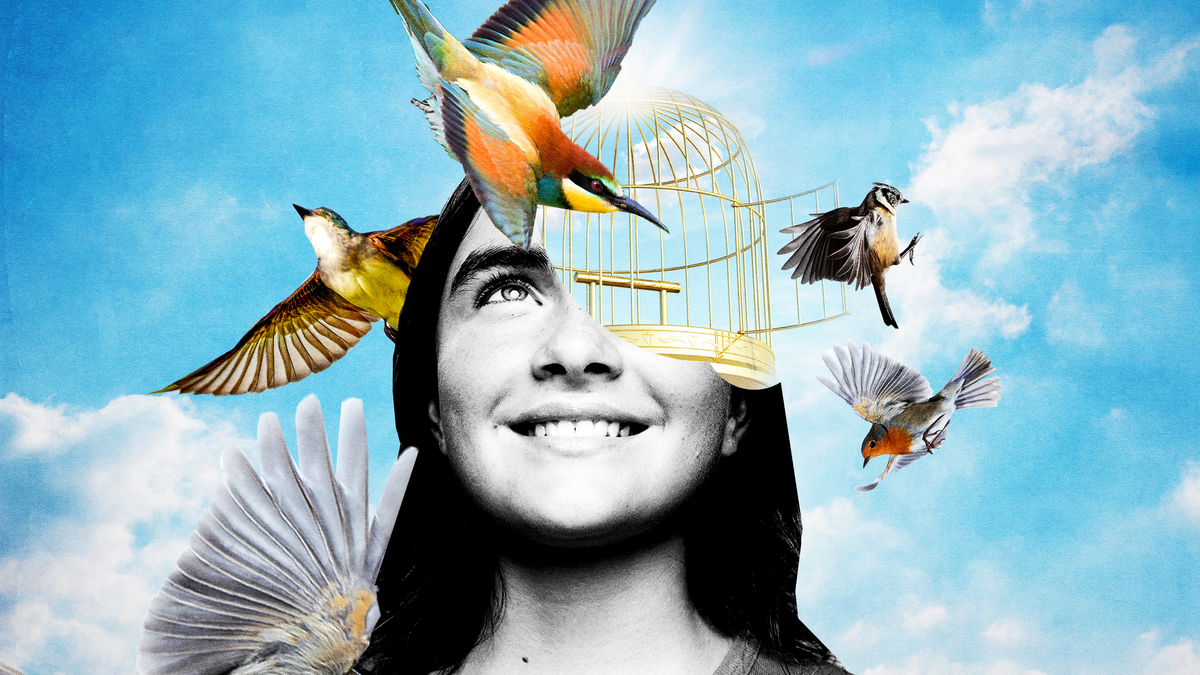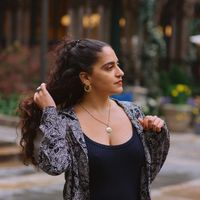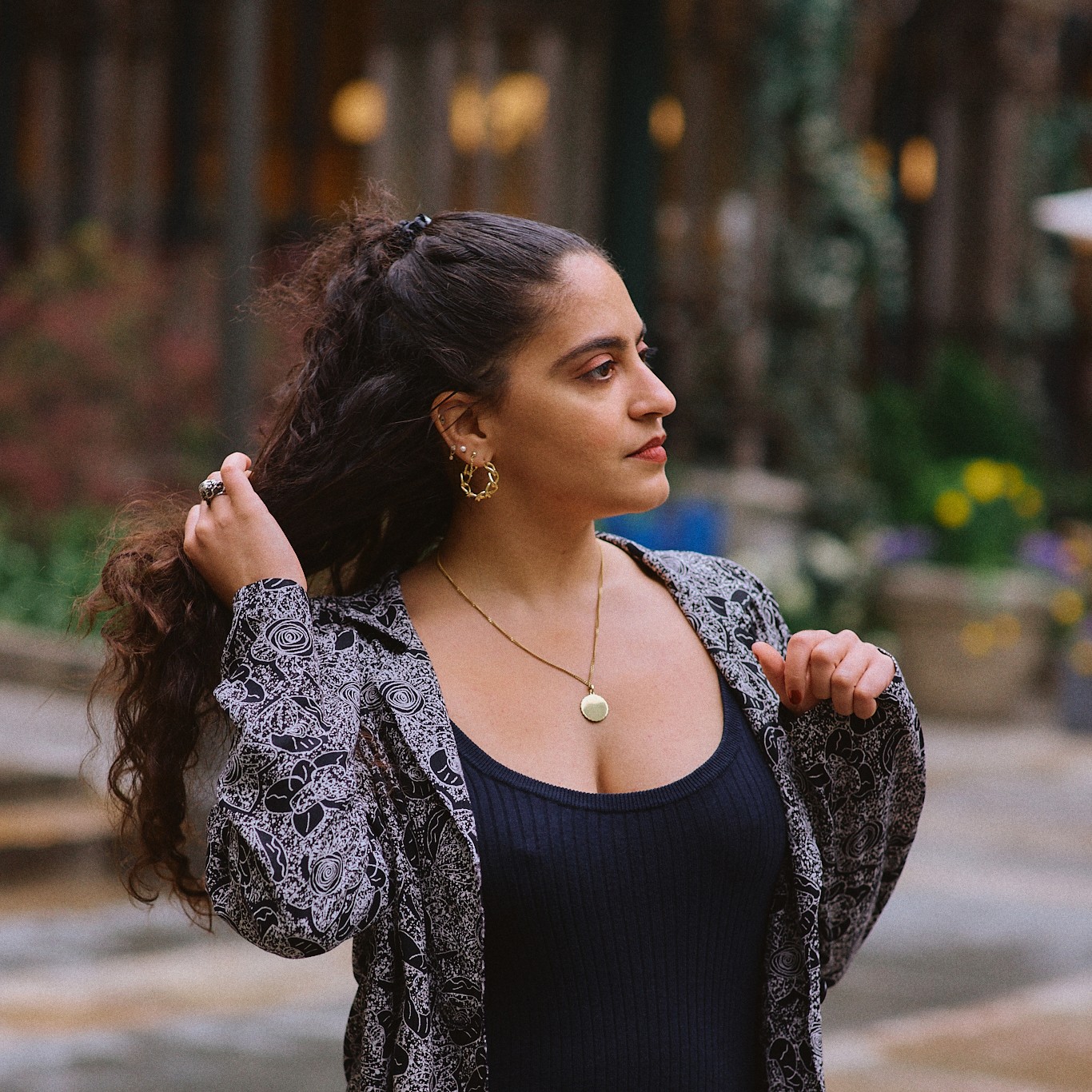How an OCD Diagnosis Set Me Free
Putting a label on my struggles has helped me make the illogical logical.


I’d already turned the key in my door to lock it before a night out and, on a cognitive level, I knew this. I also knew I’d tried the knob a few times already, just to make sure, and that the door to my apartment was, without a doubt, locked. Still, I checked again.
“You’ve locked the door,” my friend said patiently, already halfway down the stairs of my building. “And all the burners are off, and the iron is unplugged. But you can check again if you need to.”
“I have OCD,” I explained sheepishly, even though I’d told her many times before.
“I know,” she said, “so we can stay here as long as you need to.”
I like to tell people I have clinical Obsessive Compulsive Disorder pretty early on in our relationship for precisely this reason: It adds a layer of understanding and, ideally, patience to my behaviors that I’m not sure I’d be lent otherwise. It also explains why it takes me ages to leave the house; why I need reassurance about basic things; why I’m chronically late to everything. It’s difficult to run out the door when I need to check the doors, the windows, and the stove several times over. Sometimes, I even take photos of these things in anticipation of the inevitable moment I question myself later.
OCD, I explain to people, isn’t truly about cleanliness or organization. For me, the main manifestation of OCD is a near-constant chorus of negative, repetitive thoughts based on my fears. These thoughts tell me something terrible is going to happen if I don’t wash my hands, dump out that water, tap a banister on my way down the stairs, or double back to step on the same slab of sidewalk again. They tell me I’m terrible; that I’m irresponsible and therefore left the door wide open; that anything bad that’s ever happened to me was something I deserved.
Like many people with OCD, I started experiencing symptoms when I was around 11 years old (symptoms usually begin manifesting during early adolescence). I didn’t realize there was a name for my illness (or that I was even ill at all) until almost 15 years later, when I was diagnosed in my mid-20s. I long knew there was something wrong—that I didn’t think the way other people thought—but I’d attributed it to some innate emotional instability; some inner weakness that I could erase if I could just be better. After all, I wasn’t “hearing voices,” per se. The thoughts sounded just like any other thoughts (which is what made them so confusing), but these were far more frequent, far more negative, and I couldn’t gain control over them. And because I’d never heard of anyone experiencing intrusive thoughts, I assumed I was alone in my perceived madness, and therefore was better off keeping quiet about it.
Get exclusive access to fashion and beauty trends, hot-off-the-press celebrity news, and more.
It’s easy to feel lonely when you think there’s something inherently wrong with you, and that it’s entirely your fault, and that no one in the world is experiencing what you’re experiencing. OCD is exceedingly rare, impacting around 2 percent of Americans, which is, perhaps, why it’s so misunderstood. Explaining OCD to a world that believes the illness to be nothing more than a predilection for hand sanitizer and the Container Store is almost as frustrating as the disease itself.
After I was diagnosed, I surfed through Reddit and discovered many people feel trapped by their OCD diagnoses. It is manageable but incurable, and it’s difficult to come to terms with knowing you have an incredibly invasive, hopelessly permanent condition. It’s sort of like getting the flu and being told you’ll have it for the rest of your life.
But for me, the diagnosis was a relief: I finally knew what the problem was and, though it was a rare one, I was still far from alone. As a writer, it’s important to me to be able to express myself, and having the words to communicate—both to myself and to others—the inner workings of my mind was like finally being able to exhale after more than a decade of unwittingly holding my breath. The term Obsessive Compulsive Disorder was the missing piece of the puzzle in my journey to understanding myself, and to helping others understand me, too.
And although I refuse to be limited or defined by my OCD, I do think it’s an important factor to take into consideration as I move through life. People with OCD are at a higher risk of developing eating disorders (which I’ve had), insomnia (yup), depression (been there), and substance abuse disorders. This is because OCD is about control—something life often robs us of—which can be enough to send OCD patients into a tailspin. Having the disorder is like seeing the world through hyper-anxious lenses, which can be tempered when life is calm, but increase in severity once something bad has happened.
An example: When I was 20, I developed PTSD after a violent rape. I wasn’t yet diagnosed with OCD and had no idea what was going on when, suddenly, my negative thoughts spiraled out of control, preventing me from sleeping well for years. There were times when I thought I’d need to be committed because I didn’t yet have the ability to make sense of what was happening to me, or the vocabulary to communicate my inner turmoil to my loved ones. I didn’t understand that I had a condition that magnifies the impact of states like depression, anxiety, and PTSD, so I thought that my sanity was slipping from me. And I was so baffled by and ashamed of my mental state that I refused to tell anyone, unsure of what I’d say if I tried to.
That experience, above all else, is why I’m so cavalier in speaking about my OCD today. By labeling my intrusive thoughts and exposing them to the world, I’m able to rob them of their power and reduce the compulsions that accompany them. OCD may be incurable, but having a logical reason for my illogical thoughts has enabled me to dismiss them more often. And the ability to communicate my anxiety to the people around me has made me feel infinitely more authentic and seen.
An OCD diagnosis is never good news, but for more than a decade, I felt like I was living in the dark, always afraid of some monster lurking in a corner. So it’s nice to finally turn on the light; nice to discover that I have the ability to turn that light on whenever I want to; and even nicer to find that the monster, in reality, was never more than a coat rack.

Gabrielle Ulubay is a Beauty Writer at Marie Claire. She has also written about sexual wellness, politics, culture, and fashion at Marie Claire and at publications including The New York Times, HuffPost Personal, Bustle, Alma, Muskrat Magazine, O'Bheal, and elsewhere. Her personal essay in The New York Times' Modern Love column kickstarted her professional writing career in 2018, and that piece has since been printed in the 2019 revised edition of the Modern Love book. Having studied history, international relations, and film, she has made films on politics and gender equity in addition to writing about cinema for Film Ireland, University College Cork, and on her personal blog, gabrielleulubay.medium.com. Before working with Marie Claire, Gabrielle worked in local government, higher education, and sales, and has resided in four countries and counting. She has worked extensively in the e-commerce and sales spaces since 2020, and spent two years at Drizly, where she developed an expertise in finding the best, highest quality goods and experiences money can buy.
Deeply political, she believes that skincare, haircare, and sexual wellness are central tenets to one's overall health and fights for them to be taken seriously, especially for people of color. She also loves studying makeup as a means of artistic expression, drawing on her experience as an artist in her analysis of beauty trends. She's based in New York City, where she can be found watching movies or running her art business when she isn't writing. Find her on Twitter at @GabrielleUlubay or on Instagram at @gabrielle.ulubay, or follow her art at @suburban.graffiti.art